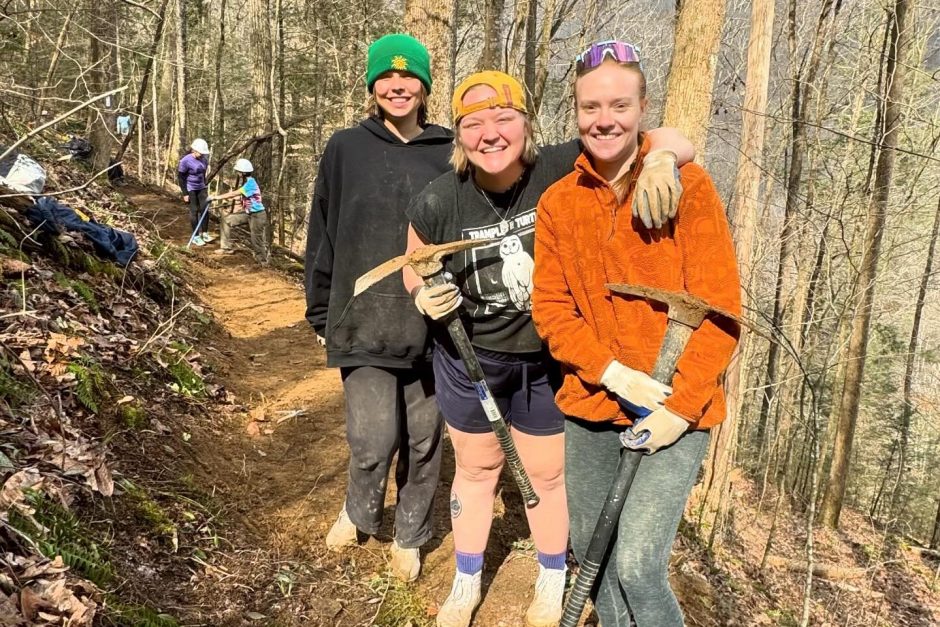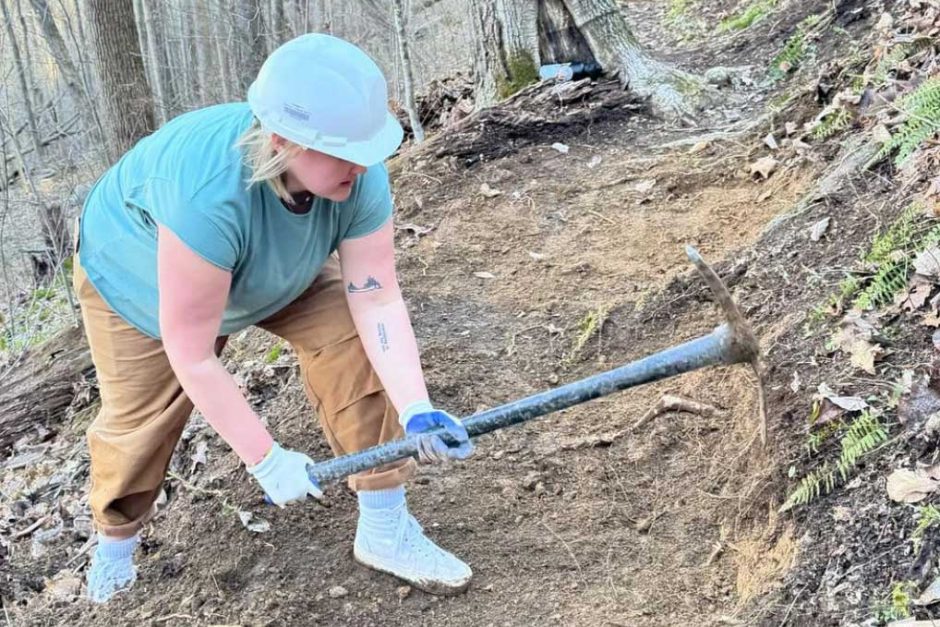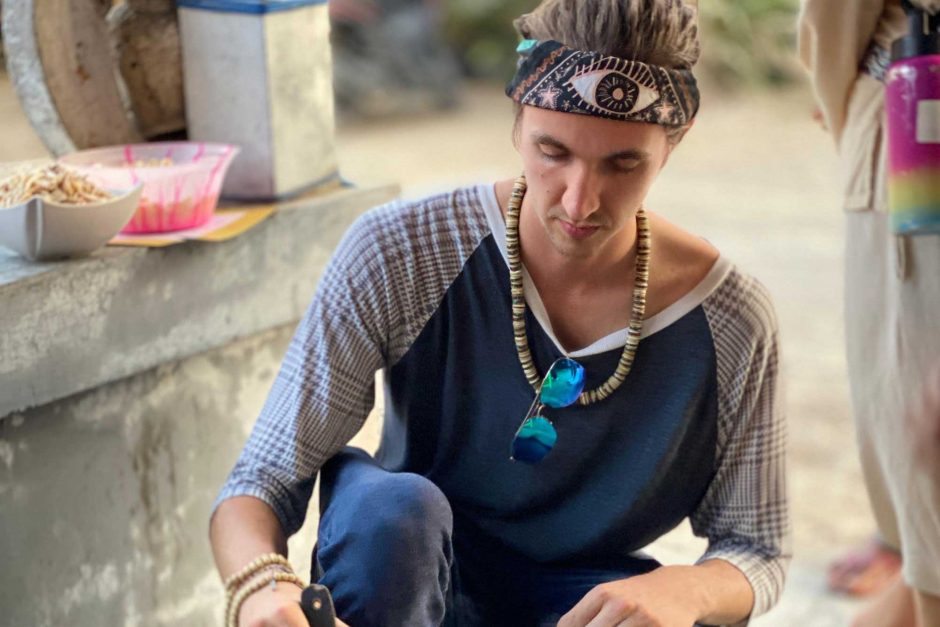A time of reckoning with racism
The death of George Floyd on Memorial Day reset race conversations worldwide, and numerous institutions and organizations issued statements supporting the Black Lives Matter movement. One of the leading national experts on diversity education, Eddie Moore Jr. ’89, said he hopes we can use this moment for real change.
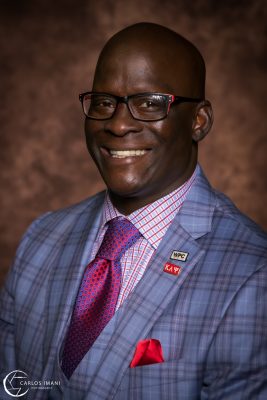
Moore has been presenting on the topic of white supremacy and white privilege since founding the White Privilege Conference in 1999 (on the Cornell campus as then-director of Intercultural Life).
“It feels somewhat affirming finally, now that people are saying ‘OK, white supremacy, white privilege, that’s what Eddie was talking about,’” he said. “I just hope we don’t let this moment pass. I hope this is really an opportunity for people to be involved over time, primarily because people lost their lives so this could happen. This moment is here because of the death of somebody’s brother, sister, parent, relative.”
But he is still concerned.
“Yes, part of me is feeling like this is our time, but part of me is worried that—like the latest holiday toy—this, too, will fizzle.”
In June ABC’s “Good Morning America” included a book Moore co-authored, “The Guide for White Women who Teach Black Boys,” as one of its eight books on race and privilege to learn how to be a white ally.
His social justice tool for the world at this time is the online 21-Day Racial Equity Challenge, which gives people a plan for building new habits to be more effective in the quest for equity and justice. There are six
updated versions of the challenge, which include suggestions for readings, podcasts, videos, observations, and ways to form and deepen community connections.
How to be a white ally
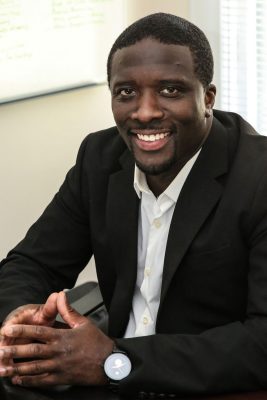
Cornell Senior Diversity Officer Hemie Collier said that to be a white ally, it’s important to be intentional about wanting actual change, to be active in the eradication of racism, and to do your own research on what that looks like.
“Understanding in order to be a good ally your support comes in the form of following our lead. Also understanding that this is not about what you think we want and need, it is about what we actually say we want
and need,” he said. “Be sincere in what you say. Don’t just read some articles and books and spout out buzz words that stand out to you. Actually understand them and apply them into your daily life. Understand that when talking about racism, this is not only about you. It is not about how talking about racism makes you feel, it’s about how actual racism makes your colleagues, classmates, etc., feel, and how it affects their lives.”
Heather ‘Byrd’ Roberts ’09, a Chicago-based poet, educator, and author of “Mahogany: A Love Letter To Black,” says she has spent a lot of time thinking about this topic since arriving on Cornell’s campus as a student in 2005. This is how she answers the question, what do you hope or expect from white allies at this time?
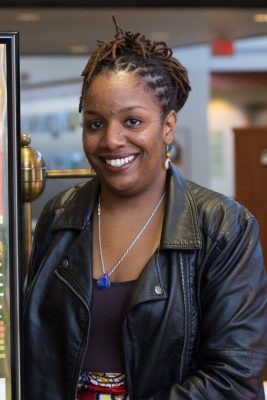
• Practice active listening. There is nothing worse than a person of color sharing their experiences and then being disregarded or discounted. Statements like “that’s not what really happened” or “I’m sure you’re taking the situation out of context” speak volumes and not in a positive way.
• Do not overstep in an attempt to assist a cause without conversing with the harmed individuals. Not asking the harmed party how an issue can be restored and assuming you know the answer is a part of the
problem.
• Do the work! [Persons] of color cannot be the ones educating everyone. The thought of this is beyond daunting and unrealistic. Make sure to do your homework—read. Respectfully ask questions. Participate in
healthy dialogue.
• Be open to unlearning. There may be beliefs you’ve held on to your entire life, based on your upbringing, exposure, and the media. You will be uncomfortable. It’s okay. Do not use this as an excuse. I live in a
constant state of uneasy I cannot escape. You can muster up the courage to be in a state of distress if it leads you toward a better understanding. It would be best if you were open to the possibility that what you know is false. We all have our biases. As long as we are committed to becoming a better version of ourselves, we are moving in the right direction.
Being active, not passive
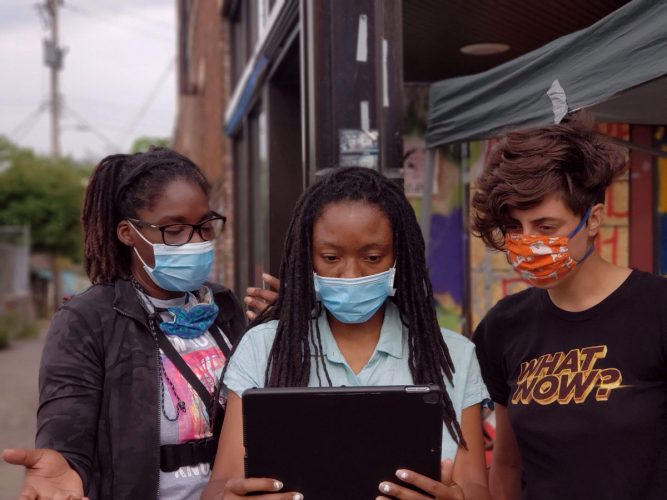
No longer is it enough to be against racism. The ideal is to be anti-racist. But what does that mean?
“To take active actions in creating an environment that is actively trying to eradicate the system and ideology of racism,” Collier said. “Actively discussing and dialoguing about the issue of racism. Always acknowledging and calling out racism when it is in your presence and when you have knowledge of it going on.”
Times have changed, and a new level of commitment is needed from allies, he said. Madi Ramírez-Tentinger ’14 is modeling that kind of commitment in the George Floyd autonomous zone in Minneapolis. The zone, they said, “is a space of protest, community, and memorial simultaneously.”
Ramírez-Tentinger, a Mexican American who considers themself a “white-passing accomplice,” lives a block from where Floyd was killed by a white police officer, and helps run the autonomous zone. Their yard originally served as a base for a medic crew, and Ramírez-Tentinger has done security, cleaning, event organizing, and held daily stakeholder meetings—basically anything needed to create safety, security, and community.
“People are never going to stop coming here,” they said. “It’s a space of Black pain and Black mourning as well as a place of community. But this place is first and foremost a space of protest against a system that allowed the city to kill a man and so many Black and Brown people before George Floyd.”
Over the weeks and months since Ramírez-Tentinger jumped in to support what they consider a sacred space, they have listened and learned.
“My eyes have been opened,” they said, “to a lot more racial inequality systemically both in our country and hyper-locally. I’ve been doing a lot of unlearning of white supremacy culture I’ve been taught—we’ve all been taught—our whole lives. Not being blatantly racist is the bare minimum and doesn’t move us toward justice.”

